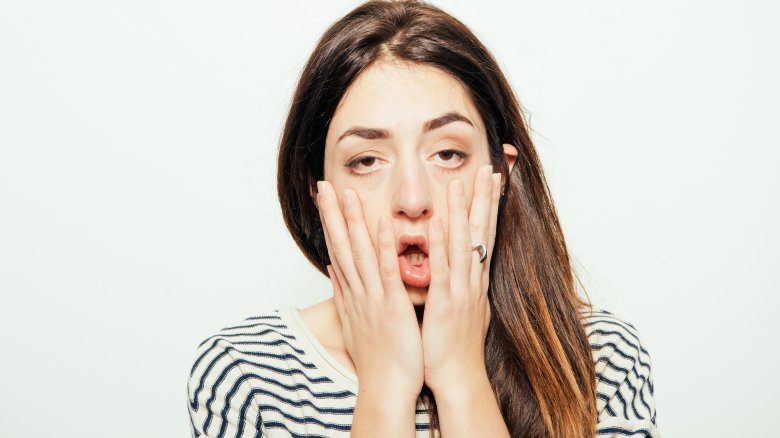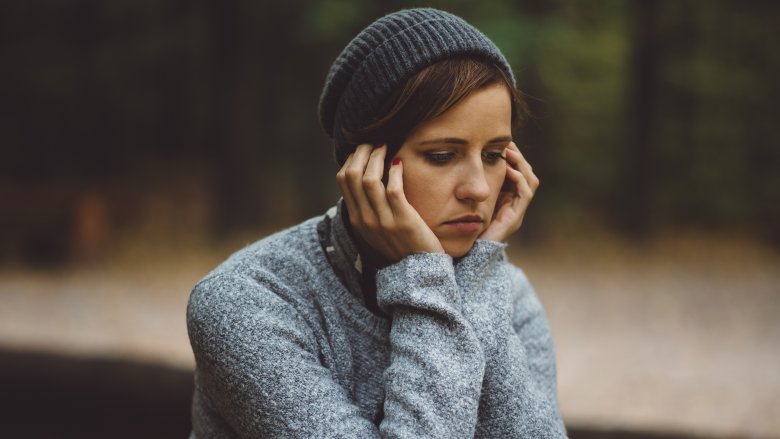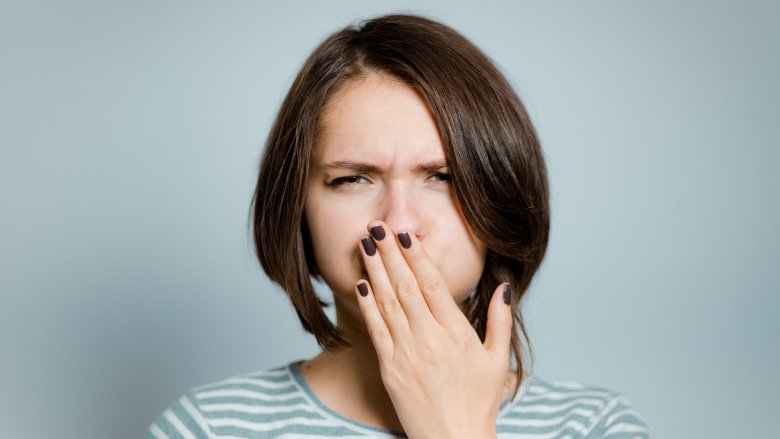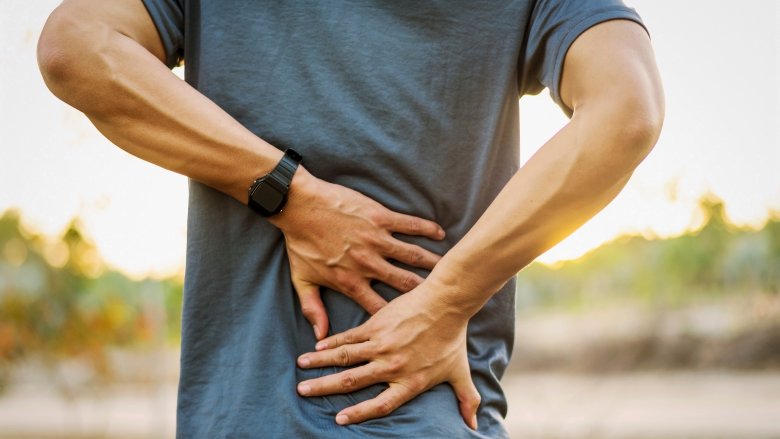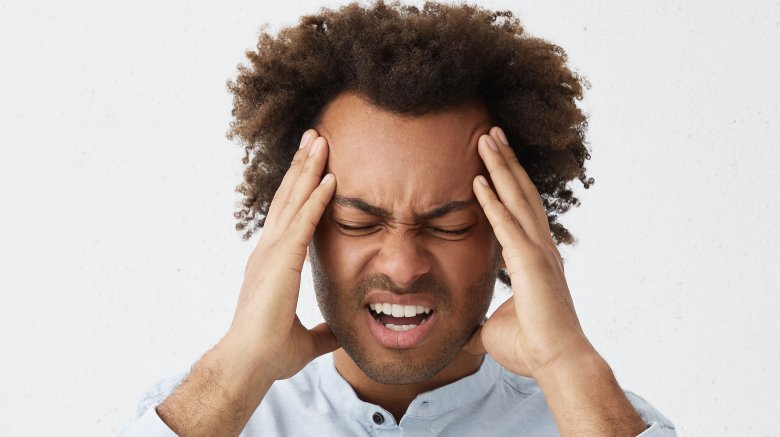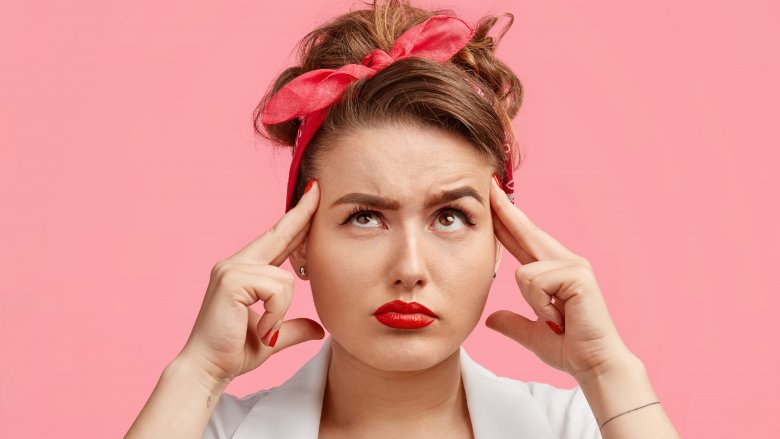8 Ways To Tell You're Addicted To Caffeine
How long can you go without a shot of caffeine? Can you wake up the morning without a cup of coffee, or get through the day without a soda or energy drink?
The struggle is real when it comes to caffeine addiction. While it is a widely-consumed legal stimulant, the fact doesn't make you immune to the health risks and uncomfortable symptoms associated with having a dependency. While we know it can be found in coffee, you may find it surprising the substance is also in many other types of drinks, foods, and medications, including pain relievers, cocoa beans, and tea. Below are some signs to look out for if you think you may be addicted to caffeine. If you remain unsure, don't hesitate to seek the counsel of your doctor. The more you know, the better off you are.
Lethargic much?
One of the tell-tale signs of caffeine dependency is the unshakeable lethargy you feel when you go without. Going to work sluggish, canceling plans with friends and loved ones due to fatigue, and not feeling motivated to participate in your usual activities are all indicators of withdrawal. If missing that morning cup of java leaves you tired and lacking in energy, you might be addicted to caffeine. Since many habitual coffee drinkers use caffeine as an aid for starting the day or as a refresher in the afternoon, it comes as no surprise that their energy levels dip dramatically when they don't get that regular intake. For many, quitting caffeine can mean losing the psychological energy push that drinking coffee provides.
The link between caffeine and depression
According to the Mayo Clinic, there's an indirect connection between caffeine consumption and depression. Since excessive intake of caffeine can prevent people from getting the proper amount of sleep, their moods may be affected adversely, contributing to feelings of depression. Moreover, if you're already addicted to caffeine, stopping your coffee habit cold turkey can also add to your depressed state. Cited studies have shown that people who already suffer from mood disorders such as anxiety and depression may want to steer clear of caffeine altogether, as the substance can worsen those psychological conditions and hinder progress.
If you feel like puking when you don't have a cuppa, you may be addicted
If you are indeed addicted to caffeine and suddenly go without, you may experience physical symptoms of withdrawal, such as nausea. This strange, uneasy feeling like you need to vomit ASAP is one indicator of an unhealthy dependency on caffeine. On the other hand, drinking coffee in and of itself can be the cause of your nausea, too. While having coffee in small amounts can be fine, over consumption can make you feel sick to your stomach.
Muscle problems
You know that all over achy feeling you get when you're coming down with the flu? Similar types of muscle pain, cramping, and stiffness can occur when you've become addicted to caffeine and try to pull back from it. Normal activities that you take for granted, like walking and light exercise, might start to feel strenuous and burdensome during caffeine withdrawal.
Pounding headaches are not a good sign
Headaches brought on by caffeine-related issues are no fun to deal with it. Since the primary cause of these head problems have to do with withdrawal from the substance, often times the pain can be eased, ironically, by consuming more caffeine. Of course, at the point in which you need to have more of something just to stave off pain, you're probably aware that you have a bit of a problem, namely addiction. As people who consume only small amounts of caffeine daily don't tend to suffer debilitating headaches when they pull back, you might consider gradually cutting back on coffee, sodas, and teas that contain caffeine.
Woah, check your mood swings
Since caffeine is a legal substance found in beverages you can easily purchase, it can be easy to forget that caffeine is still a stimulant — and a powerfully addictive one at that. As such, it can affect your moods tremendously. In addition to depression, people who are dependent on their daily intake suffer greatly when they don't get their fix, so to speak. If you are addicted, you may find that over time, you need more and more caffeine to remain stable. When your body gets used to caffeine, consuming your regular amount no longer has the same effect, causing you to experience more and more dips in your moods. It's a cycle that proves difficult to break.
Inability to concentrate
If you recently stopped drinking coffee and feel like your brain is not functioning like it used to, be aware that you might be addicted to caffeine. As you have been habitually relying on daily doses of the substance to stay alert and focused for work and play, you might find that quitting cold turkey leaves you in a haze you aren't used to.
Digestion issues are no fun
If you find that you have digestive issues that cause you to feel constipated on the reg, it may be time to examine your relationship to caffeine. Are you addicted? Having trouble maintaining regular healthy bowel movements can be one surefire sign that the answer is yes. Cited studies indicate that drinking coffee and other beverages that contain caffeine can lead to a host of stomach problems, including flatulence, painful heartburn, ulcers, IBS, and frequent urination. To avoid these physical issues, you may want to reduce your caffeine intake or remove it from your diet altogether.
While these indicators don't necessarily mean you are addicted to caffeine, they do present red flags. As such, if you are unsure if you are dependent on it, ask your doctor to help you parse out your symptoms.

